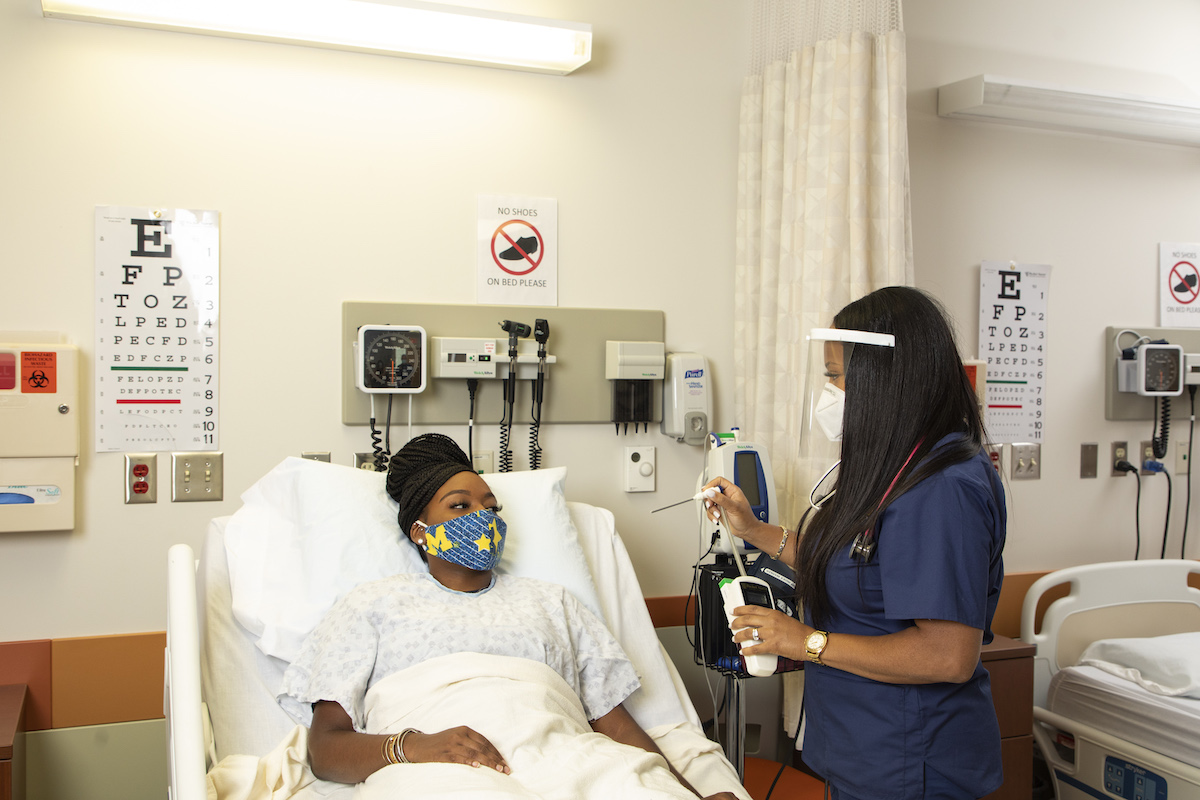UM-Flint College of Health Sciences addresses equity in healthcare

The University of Michigan-Flint College of Health Sciences is committed to producing graduates who can treat patients from a wide variety of backgrounds and understand how to improve the healthcare system to provide equitable care.
The college will provide five educational modules to teach students about inequities in the healthcare system. Module topics include implicit bias, microaggressions, cultural humility, social determinants of health, history of structural racism, and the impact of policies on health.
"The ultimate goal is to graduate students who are more prepared to provide health services in a diverse community," said College of Health Sciences Dean Donna Fry.
CHS has been working on addressing diversity, equity, and inclusion in the college for several years. Four years ago, the college developed holistic admissions processes that look at attributes they want their graduates to have.
In the summer of 2020, the Genesee County Board of Health issued a statement saying racism is a public health crisis. Faculty in CHS discussed how they would respond and instituted publicly accessible webinars and panel discussions on the intersectionality of -isms and health and how racism affects public health. Fry said the college faculty knew they wanted to do more and add something to be sustainable. They worked with Chief Diversity Officer David Luke on five implicit bias training sessions for faculty and staff during the Winter 2021 semester.
"David was very helpful in engaging faculty and staff to better understand their own biases and how that may impact others," Fry said. "We had great dialogue. We then devoted our May faculty retreat to identifying curricular modules to develop to address implicit bias and structural racism/oppression and the impact on the health of our citizens."
Fry recruited experts to design the five modules, which will be completed by December. Faculty will begin training on the modules shortly after and student instruction in the modules will be implemented beginning in Winter 2022.
Discussion is an important aspect of the online modules.
"These aren't issues you can just think about by yourself," Fry said. "There is a richness in learning when you are having discussions. They are not easy topics."
DEI work in healthcare can improve outcomes for patients. Fry explains that structural oppression may take the form of a health clinic policy that discontinues a patient's care if the person misses more than two or three appointments. If someone doesn't own a car and relies on public transportation, they may be more likely to miss medical appointments.
"If you have to take three buses to get to the doctor's office, the odds of something going wrong are pretty good," she said. "We want our graduates to be able to examine healthcare policies and practices to question the impact on the most vulnerable of our patients."
There are larger societal issues like racism, ageism, and sexism that impact healthcare. Housing redlining has financially disadvantaged many minority populations over decades, impacting the current socioeconomic status of many racial minorities. Earlier medical research focused more on men than women makes it difficult to discern best practices for the care of women until new research that includes women is completed.
"The CHS faculty are really on board with this. There is a core group of faculty working on it, and it really is great to see this across the college," Fry said. "I think the core piece to making this happen was having faculty go through the implicit bias training. We have to be motivated to change the curriculum, to change what we are doing. There is an energy behind it in our college. It's nice to see diversity, equity, and inclusion efforts moving forward."
Related Posts
No related photos.
Lindsay Knake
Lindsay Knake is the Communications Coordinator for the UM-Flint Division of Student Affairs. Contact her with any questions, comments, or ideas about the DSA newsletter, social media, events, and communications.